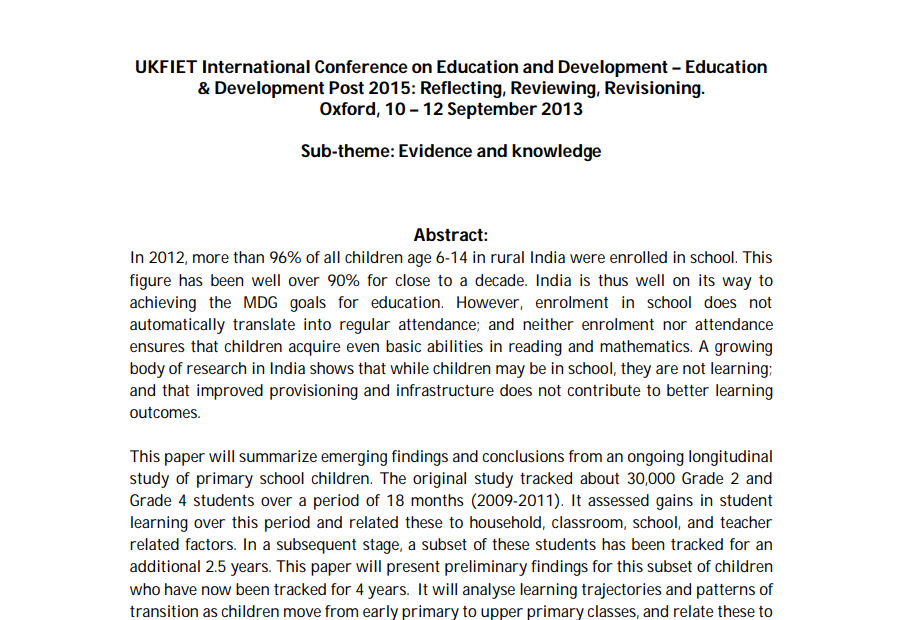
| This paper will summarize emerging findings and conclusions from an ongoing longitudinal study of primary school children. The original study tracked about 30,000 Grade 2 and Grade 4 students over a period of 18 months (2009-2011). It assessed gains in student learning over this period and related these to household, classroom, school, and teacher related factors. In a subsequent stage, a subset of these students has been tracked for an additional 2.5 years. This paper will present preliminary findings for this subset of children who have now been tracked for 4 years. It will analyse learning trajectories and patterns of transition as children move from early primary to upper primary classes, and relate these to the larger (classroom, school and home) context in which these children live. The paper will focus on key issues requiring attention from policy makers if learning, rather than schooling, is to be guaranteed to all children. |
Author(s): Suman Bhattacharjea, Wilima Wadhwa and Purnima Ramanujan
Year Published: 2013
Language: English
Country: India


